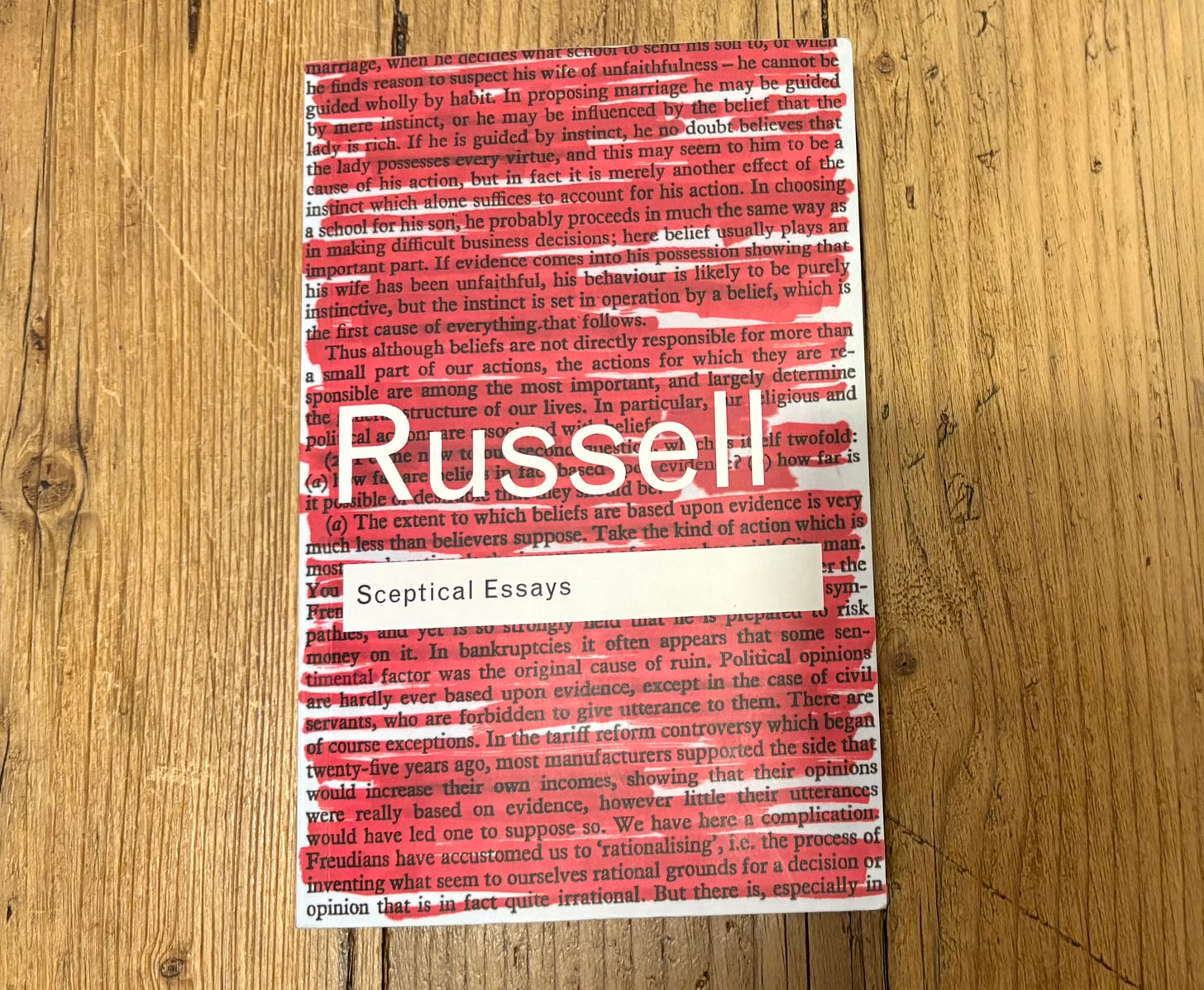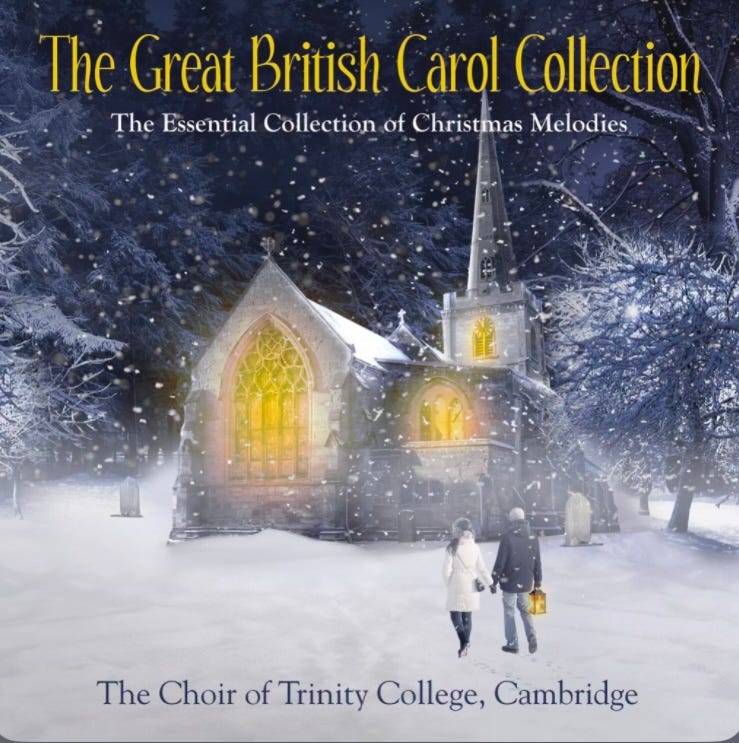TLDR:
Machines and the Emotions, Bertrand Russell
Rational Animals, Donald Davidson
Machines for Living In, Ralph S. Weir
In Dulci Jubilo, Robert Pearsall
Liszt’s Weihnachtsbaum, Thérèse Malengreau
This is the fifth in a regular Sunday series. As with previous editions, I’ll move beyond ’things I’ve been reading’, towards the end.
1) In his short essay Machines and the Emotions (1924), Bertrand Russell weighs up the personal and societal costs and benefits of mechanisation.1 I’ll only make two brief comments about this essay — mainly because I already published a long piece about machines, this week. First, a general point about reading Russell’s social and political philosophy: on my view, it really is worth setting aside any discomfort you experience at Russell’s casual sexism (and his other, even stupider, prejudices), in order to gain from engaging with his arguments. Second, whilst I disagree with the idea, advanced in this essay, that beyond the meeting of basic needs, the human desire for acquiring material goods hinges on the desire for respect qua positional status, I do love Russell’s bracketing out of needs. It often annoys me how Marxists get a monopoly on the relevance of need; in particular, I think philosophers discussing distributive justice should generally do a better job of distinguishing between needs and wants.
2) As part of my ongoing practice of reading classic twentieth-century philosophy papers, I returned this week to Rational Animals (1982), by Donald Davidson. I previously read this paper a few months ago, whilst enjoying Susanna Monsó’s Playing Possum, which I wrote about here. The question Davidson addresses is “what makes an animal rational?”. That is, what makes some animals able to “think and reason”, in terms of being able to do things like “consider, test, reject, and accept hypotheses”, or “accept doctrines on inadequate evidence”? Davidson’s answer is that it comes down to the “social trait” of linguistic communication. In other words, if you don’t believe that your dog has language, then you shouldn’t believe your dog is rational! Davidson’s conclusion to this end depends on the following steps: 1) that being able to communicate linguistically is necessary to having “command of the subjective-objective contrast”; 2) that having such a command is necessary to having a “concept of belief” (in the minimal sense of being able to have beliefs about your beliefs); 3) that having a concept of belief is necessary to having a capacity for propositional attitudes; 4) that having a capacity for propositional attitudes is crucial to being rational. Now, Davidson’s argument has faced many objections (including those nicely summarised by Monsó), particularly from people who believe he puts too high a bar on the capacities discussed. I like the chain-like nature of this paper, however. It’s hard, but it’s clear — at least until its final “triangulation” analogy. It’s worth thinking about, since you can.
3) Last Sunday, I wrote about Anil Seth’s recent dismissal of computational functionalism. This time, I want to flag Ralph S. Weir’s recent article on functionalism and architecture, Machines for Living In. Weir argues that if you “[p]lug the right understanding of function into functionalism — for example, that a house is a nice place to live, an office an efficient place to work, and a pub a cozy place to drink — [then] a powerful and valuable theory of architecture emerges that deserves our renewed attention”. It’s an interestingly and elegantly argued piece. And funnily, architectural functionalism happens also to be a key theme within one of the best novels I read this year: Peter Stamm’s Seven Years (2009).
4) Because it’s almost Christmas, and I’m about to go to a Nine Lessons and Carols, I’m going to include two musical items, today. First, the Robert Pearsall arrangement of In Dulci Jubilo. This arrangement is my favourite Christmas carol (in the sense of being my favourite short standalone piece of sung sacred Christmas music). I particularly like the moment when, at “O patris caritas”, you realise that Pearsall is going to do more than standard strophism. I also love the build up to the final statement of “O that we were there”. But I like every bar. There are various King’s recordings of this arrangement, which are nice, but the one I usually listen to is by their neighbours, Trinity, because I prefer the sound of a women topline.
5) The other piece of music I listen to the most at Christmastime is this recording, by the Belgian pianist Thérèse Malengreau, of Liszt’s Weihnachtsbaum. Again, the In Dulci Jubilo is my favourite. If you listen to it, I hope you enjoy it as much as I do. Happy Christmas, and thanks for reading!
You can find this essay in Sceptical Essays, and various other places.










Thanks for this post. I very much enjoyed it!
Thank you for this series - always something interesting to think about (and listen to). Happy Holidays.